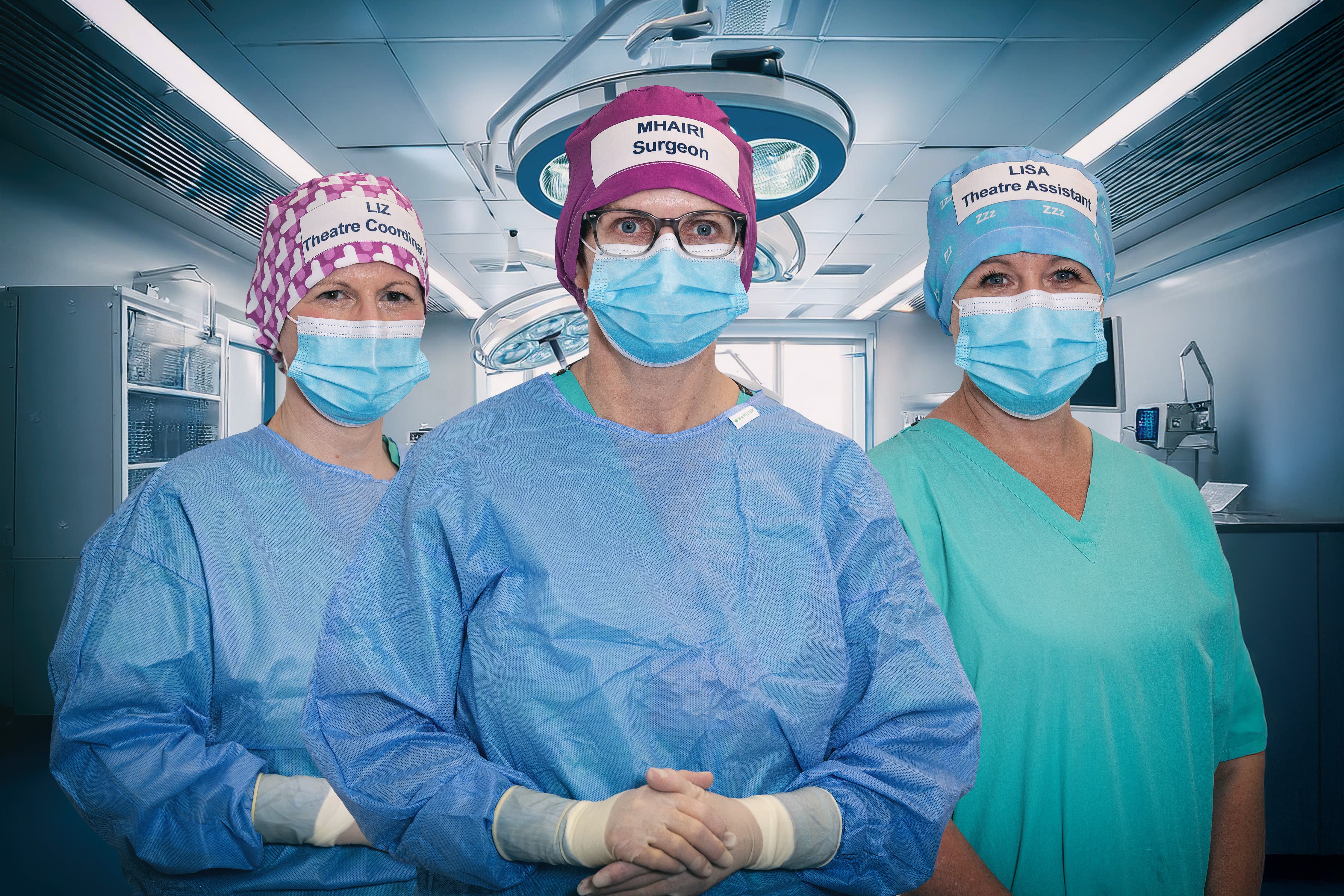Hospital trials biodegradable theatre caps in bid to reduce waste
They are made from plant-based fibre.

Your support helps us to tell the story
From reproductive rights to climate change to Big Tech, The Independent is on the ground when the story is developing. Whether it's investigating the financials of Elon Musk's pro-Trump PAC or producing our latest documentary, 'The A Word', which shines a light on the American women fighting for reproductive rights, we know how important it is to parse out the facts from the messaging.
At such a critical moment in US history, we need reporters on the ground. Your donation allows us to keep sending journalists to speak to both sides of the story.
The Independent is trusted by Americans across the entire political spectrum. And unlike many other quality news outlets, we choose not to lock Americans out of our reporting and analysis with paywalls. We believe quality journalism should be available to everyone, paid for by those who can afford it.
Your support makes all the difference.A hospital has marked a “crucial step” in addressing medical waste as it trials sustainable theatre caps worn by staff.
The Golden Jubilee University National Hospital in Clydebank, West Dunbartonshire, has helped create theatre caps from plant-based cellulosic fibre in a bid to reduce waste created by single-use disposable caps.
The project was led by researchers from the University of Strathclyde and Heriot-Watt University.
The team says around 800,000 single-use caps are used each year in Scottish hospitals and they may take up to 300 years to decompose, whereas the new caps are biodegradable.
They are also colour-coded for staff in different roles, helping patients and colleagues identify them more easily.
Staff at the hospital will now trial the caps and provide feedback to find if they can be rolled out across Scotland.
It is part of the broader Design Hopes (Healthy Organisations in a Place-based Ecosystem, Scotland) project, led by Professor Paul Rodgers of the University of Strathclyde and Professor Mel Woods from the University of Dundee.
The project was recently awarded £4.6 million by the Arts and Humanities Research Council as one of four Green Transition Ecosystem hubs in the UK, which aims to address climate change issues.
Dr Euan Winton, assistant professor of design at Heriot-Watt, said: “NHS Scotland faces massive resource-driven issues, with millions of single-use disposable theatre caps going to incineration in Scotland annually.
“The new sustainable theatre caps represent a crucial step in addressing this significant wastage and demonstrating the power of design in tackling environmental challenges in healthcare.
“Our specialist School of Textiles and Design in the Scottish Borders is proud to be part of the Design Hopes hub tackling a broad range of global challenges, using our expertise to find new and innovative solutions to sustainability.”
Carole Anderson, director of transformation, strategy, planning and performance at NHS Golden Jubilee, added: “NHS Golden Jubilee is proud to be at the forefront of this sustainable innovation in healthcare.
“These new theatre caps align with our commitment to reducing our environmental impact and also enhance our ability to provide safe and high-quality patient care.
“By improving staff identification and potentially easing patient anxiety, these caps offer multiple benefits beyond their eco-friendly design.”
Prof Rodgers said he is confident the theatre caps will help drive a positive change towards net zero.
He said: “This project showcases the power of collaboration between universities, healthcare providers and design researchers.
“By bringing together expertise from various fields, we’ve been able to create a solution that is both practical and sustainable.
“Moreover, this project has potential for creating new green jobs across Scotland that will have socio-economic as well as environmental impact.”